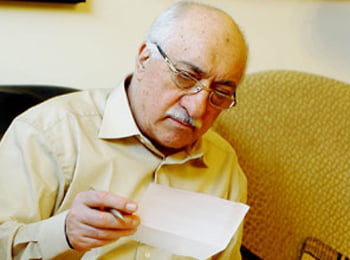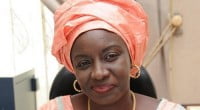News

Erdogan’s vendetta against moderate Muslims threatens Turkey’s role in War on Terror
This blatant display of force demonstrates how far Turkey’s increasingly autocratic President Recep Tayyip Erdogan will go to solidify his power and pursue his vendetta against the adversary he fears most: the moderate Muslim cleric Fethullah Gulen, whose columns were published by Zaman.

Gülen condemns Pakistan attack, asks Muslims to protect minorities
Renowned Turkish Islamic scholar Fethullah Gülen has strongly condemned the brutal terrorist attack on a children playground in the eastern city of Lahore, Pakistan that killed at least 72 and wounded more than 300 people, including many children.

South Africa set to host the globally acclaimed International Festival of Language and Culture
The International Festival of Language and Culture (IFLC) promotes research, learning and information exchanges in support of peace, friendship, understanding, inclusion and diversity. Founded in 2003 with 17 countries participating, the IFLC has grown to include 145 countries with more than 2,000 participants in 2015.

Fethullah Gulen Condemns the Terrorist Attack in Lahore, Pakistan and Extends Condolences to Relatives of Victims
I have learned with grief about the horrible terrorist attack in Lahore, Pakistan that took 70 lives, majority of whom women and children, and injured over three hundred people on a children’s playground. I condemn this attack in the strongest terms and on this sad occasion I reiterate my condemnation of all forms of terror regardless of their perpetrators or their stated purposes.

Islamic Scholar Fethullah Gulen Condemns Brussels Terrorist Attacks
Fethullah Gulen, a well-known Islamic scholar, preacher and social advocate, who resides in PA, strongly condemned the brutal terrorist attacks at the Brussels International Airport and Metro station on March 22 that resulted in the deaths of more than 30 people and the injuries of hundreds.

Turkish Cultural Center honours several Senegalese women
Several Senegalese women, including former Prime Minister Aminata Touré, the Minister of Women’s Affairs, Mariama Sarr and a reporter Amy Sarr Fall, were on Thursday honored in Dakar by the Turkish Centre for Scientific and Cultural Dialogue (ATSA), APA observed here.

National Development Requires Peaceful Co-existence
Organized by the Ghana-Turkey Co-operation and Development Association (TUDEC), the Great Volta Foundation Dialogue Centre and the Fountain Magazine, in collaboration with the National Peace Council. The conference stressed that peaceful co-existence is possible only when people learn to accept, embrace and respect one another in spite of their religious and racial differences.

International Festival of Language and Culture
The International Festival of Language and Culture (IFLC) promotes research, learning and information exchanges in support of peace, friendship, understanding, inclusion and diversity. Founded in 2003 with 17 countries participating, the IFLC has grown to include 145 countries with more than 2,000 participants in 2015.























